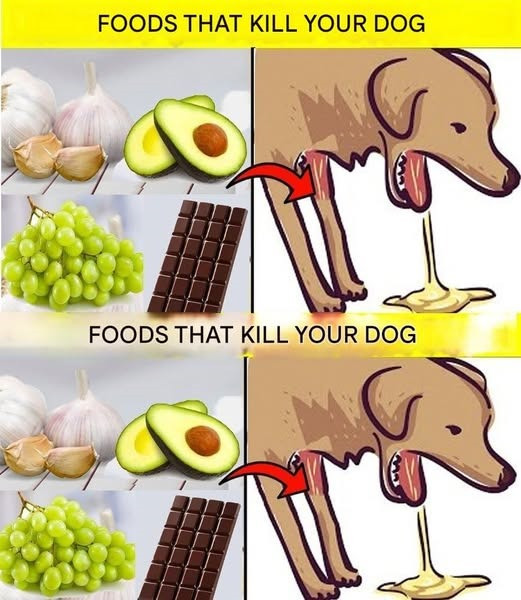ADVERTISEMENT
### 19. Chocolate-Covered Nuts
* **Why it’s toxic:** Combines dangers of chocolate and nuts.
* **Effects:** Vomiting, seizures, weakness.
* **What to do:** Emergency care.
### 20. Artificial Sweeteners Besides Xylitol
* **Why it’s toxic:** Some sugar substitutes cause gastrointestinal upset.
* **Effects:** Diarrhea, vomiting.
* **What to do:** Monitor and consult vet.
### 21. Citrus Fruits (Lemons, Limes, Grapefruit)
* **Why it’s toxic:** Contains psoralens and oils irritating to dogs.
* **Effects:** Drooling, vomiting, diarrhea.
* **What to do:** Avoid feeding citrus.
### 22. Nutmeg
* **Why it’s toxic:** Contains myristicin, which can cause hallucinations and nervous system damage.
* **Effects:** Tremors, seizures, increased heart rate.
* **What to do:** Vet care.
—
## Signs and Symptoms of Food Poisoning in Dogs
It’s vital to recognize early signs of poisoning, which can include:
* Vomiting or diarrhea (sometimes bloody)
* Lethargy or weakness
* Excessive drooling
* Difficulty breathing or coughing
* Tremors or seizures
* Loss of appetite
* Abdominal pain or bloating
* Unusual behavior or disorientation
If you suspect your dog has ingested a toxic food, contact your veterinarian or an emergency animal poison control center immediately.
—
## What To Do If Your Dog Eats Something Toxic
1. **Stay calm** and try to determine what and how much was eaten.
2. **Remove any remaining food or packaging** to prevent further ingestion.
3. **Call your vet or emergency animal poison control** for advice.
4. Do **not induce vomiting** unless instructed by a professional.
5. Follow all treatment recommendations and take your dog to the vet if advised.
—
## How to Prevent Accidental Poisoning
* Store toxic foods out of reach or in locked cabinets.
* Avoid feeding your dog table scraps.
* Educate family members and guests about harmful foods.
* Keep emergency numbers for your vet and poison control handy.
* Train your dog with commands like “leave it” or “drop it.”
—
## Safe Food Alternatives for Your Dog
If you want to share snacks with your dog, opt for safe options such as:
* Carrot sticks
* Apple slices (no seeds)
* Cooked pumpkin
* Blueberries
* Plain cooked chicken or turkey (no seasoning)
* Peanut butter (xylitol-free)
* Green beans
Always introduce new foods slowly and in moderation.
—
## Conclusion
Your dog relies on you to protect them from harm, including the dangers hidden in seemingly harmless human foods. Understanding which foods can kill your dog — from chocolate and grapes to garlic and nuts — is essential for every responsible pet owner.
If you suspect your dog has ingested a toxic food, quick action can save their life. Prevention, vigilance, and education are the keys to ensuring your furry friend stays safe, healthy, and happy for many years.
Remember: when in doubt, always consult your veterinarian.
—
If you want, I can help with a quick reference printable guide of toxic foods for dogs or tips for a dog-safe diet. Would you like that?
